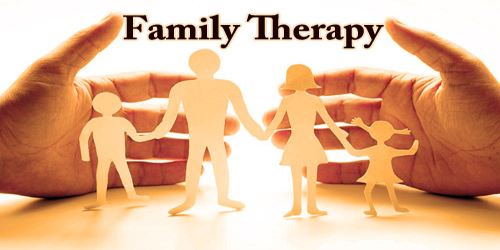Introduction:
A Ph.D. in Couple and Family Therapy delves into the intricacies of human relationships, equipping individuals with advanced knowledge and skills to help couples and families navigate challenges and thrive. This guide outlines the admission process, eligibility criteria, completion time, career prospects, syllabus overview, internship opportunities, scholarships, and FAQs relevant to aspiring scholars in this field.
Admission Process:
- Research Programs: Explore universities offering Ph.D. programs in Couple and Family Therapy, focusing on faculty expertise and research areas.
- Application Submission: Complete online applications, providing transcripts, recommendation letters, statement of purpose, and GRE scores (if required).
- Interviews: Shortlisted candidates may undergo interviews to assess research potential and program fit.
- Writing Samples: Submit writing samples demonstrating research aptitude and interest in couple and family therapy.
Eligibility:
- Educational Background: A master's degree in Marriage and Family Therapy or related fields from an accredited institution.
- Academic Performance: Strong academic record, typically with a minimum GPA requirement.
- Clinical Experience: Prior experience in providing therapy to couples and families, demonstrating practical skills and understanding of therapeutic interventions.
- Research Aptitude: Demonstrated interest and proficiency in research methodologies, often evidenced through academic projects or publications.
Completion Time:
Ph.D. programs in Couple and Family Therapy usually span 4 to 6 years, including coursework, clinical training, research, and dissertation writing. Completion times may vary based on research progress and program requirements.
Career Opportunities:
- Clinical Practice: Opportunities to work as licensed couple and family therapists in private practice, clinics, hospitals, or community mental health centers.
- Academic Positions: Roles in academia as professors or researchers, teaching and conducting research in couple and family therapy theories, interventions, and outcomes.
- Supervision and Consultation: Careers as clinical supervisors or consultants, providing guidance and mentorship to early-career therapists and agencies.
- Program Development: Positions in organizations or agencies involved in developing and implementing couple and family therapy programs, services, and policies.
- Research and Publication: Opportunities to engage in research, publish scholarly articles, and contribute to the advancement of knowledge in couple and family therapy.
Syllabus:
- Advanced Family Therapy Theories: Exploration of advanced theories and models in family therapy, including structural, systemic, narrative, and solution-focused approaches.
- Clinical Assessment and Diagnosis: Training in assessing and diagnosing relational and mental health issues within couple and family systems, utilizing standardized tools and techniques.
- Therapeutic Interventions: Examination of evidence-based interventions for working with couples and families, addressing communication, conflict resolution, intimacy, and parenting.
- Multicultural Competence: Study of cultural factors, diversity, and social justice issues in couple and family therapy practice, emphasizing culturally responsive interventions.
- Research Methods and Statistics: Training in research design, data collection, statistical analysis, and interpretation, focusing on research relevant to couple and family therapy.
Internship Opportunities:
- Clinical Placements: Internships in couple and family therapy clinics or agencies, providing supervised therapy experience with diverse client populations.
- University Counseling Centers: Internships in university counseling centers, offering counseling services to students and faculty, with a focus on couple and family therapy.
- Community Mental Health Settings: Internships in community-based mental health agencies or nonprofits, providing therapy services to couples and families from various backgrounds.
- Research Labs: Internships in research labs or institutes, assisting with data collection, analysis, and publication of research findings in couple and family therapy.
Scholarships and Grants:
- Institutional Scholarships: Universities may offer merit-based scholarships, tuition waivers, or assistantships to Ph.D. students in Couple and Family Therapy.
- Professional Associations: Scholarships and grants from counseling associations or foundations supporting graduate education and research in the field.
- Government Funding: Federal or state grants for mental health research or workforce development initiatives may provide financial support to Ph.D. students.
- External Fellowships: Prestigious fellowships like the National Institutes of Health (NIH) or the National Science Foundation (NSF) offer funding and recognition for doctoral research in couple and family therapy.
FAQs:
Can I pursue a Ph.D. in Couple and Family Therapy with a master's degree in a different field?
While a master's degree in Marriage and Family Therapy or related fields is preferred, some programs may accept applicants with relevant experience or coursework in related disciplines.
Is clinical experience required for admission to a Ph.D. program in Couple and Family Therapy?
Prior clinical experience in couple and family therapy or related fields is highly beneficial, although some programs may consider applicants with strong academic backgrounds and research potential.
What types of research topics can I pursue in a Ph.D. program in Couple and Family Therapy?
Research topics may include couple and family therapy effectiveness, therapist-client relationships, cultural competence, trauma-informed care, and interventions for specific relational issues.
Are there opportunities for international students in Ph.D. programs in Couple and Family Therapy?
Yes, many universities welcome international students to their Ph.D. programs, offering support services and opportunities for research and clinical training. International students should ensure they meet visa requirements and language proficiency standards for admission.
What are the licensure requirements for practicing as a couple and family therapist?
Licensure requirements vary by state but typically include completing a graduate degree, supervised clinical experience, and passing a licensure exam. Ph.D. programs often provide coursework and supervised experience to meet licensure requirements.















